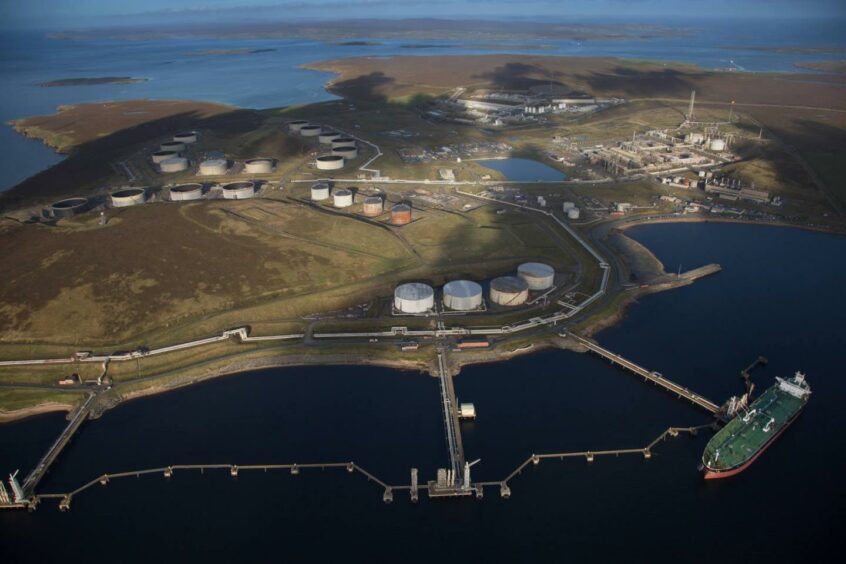
A study showcasing Shetland’s potential to become a leading green energy hub of the future has been published.
Worley, Voar and Wood Mackenzie teamed up to evaluate the technical and economic potential of different low-carbon technology solutions.
The trio have now delivered their work to the Net Zero Technology Centre (NZTC) and Shetland Islands Council – the pair are looking at how Shetland could support the energy transition.
The Shetland and North East Scotland Techno Economic Study supports the objectives of the island’s Opportunity for Renewable Integration with Offshore Networks (ORION) project.
A raft of transition technologies have been explored, including carbon capture, utilization and storage (CCUS), onshore, fixed, and floating offshore wind, blue and green hydrogen production, tidal stream, and onshore and offshore electrification of multiple existing assets.
Recommendations for future research have also been made, including conducting more pipeline and infrastructure studies, and collaborative planning to support the skills transition.
Worley carried out the technical components of the inquiry, which defined and examined key energy transition opportunities for power generation.
This determined the technical and economic potential of different low-carbon technology options to support future business and investment cases for a decarbonised energy landscape in Shetland.
Analysts at Wood Mackenzie were on hand to provide support, performing economic modelling and analysis of energy transition opportunities.
Meanwhile experts at Voar provided detailed technical information and advice from a local Shetland perspective.
Kirsten Oliver, vice president – specialist technical solutions at Worley, said: “This study directly supports the NZTC’s efforts in accelerating the energy transition and Worley’s purpose of delivering a more sustainable world.
“It’s a great example of industry collaboration, one of the key shifts detailed in our joint paper with Princeton University, US, From ambition to reality.”
Darren Gee, project manager at the NZTC, said: “While the study was created to research the green energy potential of the North-East and Shetland, what it delivered brought into focus the incredible economic opportunity of a strategic approach to delivering a low-carbon future across the nation. The study’s findings have already shaped other projects across Scotland, accelerating key technologies and shaping innovative thinking to make the future ambition tomorrow’s reality.”
Douglas Irvine, executive manager – future fuels at Shetland Islands Council, said: “I welcome the completion of this essential research work for the ORION project. The Techno Economic Study’s conclusions emphasize that future energy opportunities in and around Shetland are real and substantive, particularly for transitioning to green hydrogen production in the Islands. And should be advanced through more detailed investigations and engagement with the Shetland community.”
Adam Priest, technical director at Voar, said: “This study represents a significant collaboration between the energy industry and local government, delivered through a collaborative partnership of Worley, Wood Mackenzie and Voar. To accelerate the energy transition, continued collaboration is needed on subjects as diverse as skills planning, electrification, infrastructure, and supply chain development. Wider regional collaboration also plays to the strengths of our unique geographical attributes and must form a part of effective stakeholder engagement going forward.”
Malcolm Forbes-Cable, vice president, energy consulting at Wood Mackenzie, said: “Wood Mackenzie’s involvement in the ORION project directly aligns with our mission to transform the way we power our planet. By partnering with organizations such as Worley and NZTC and governments, we strive to inspire better decision-making when it comes to the energy transition.”

